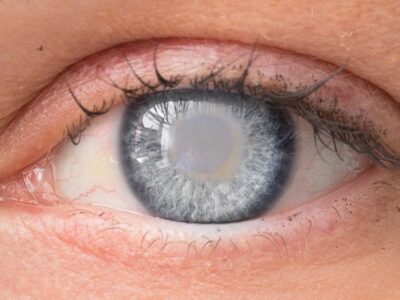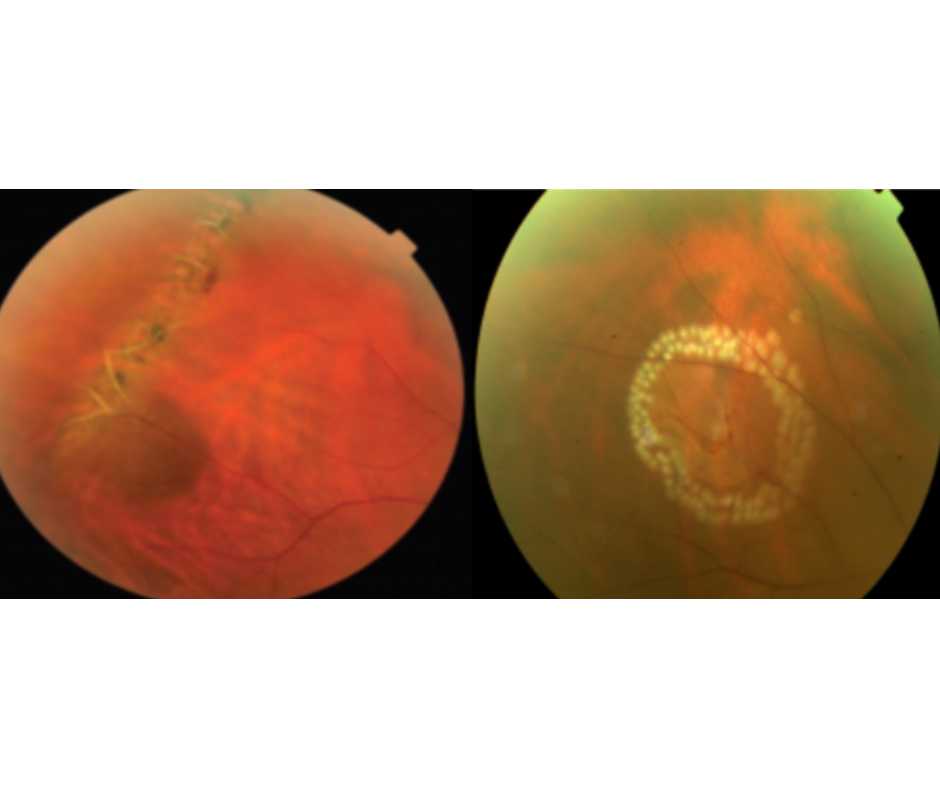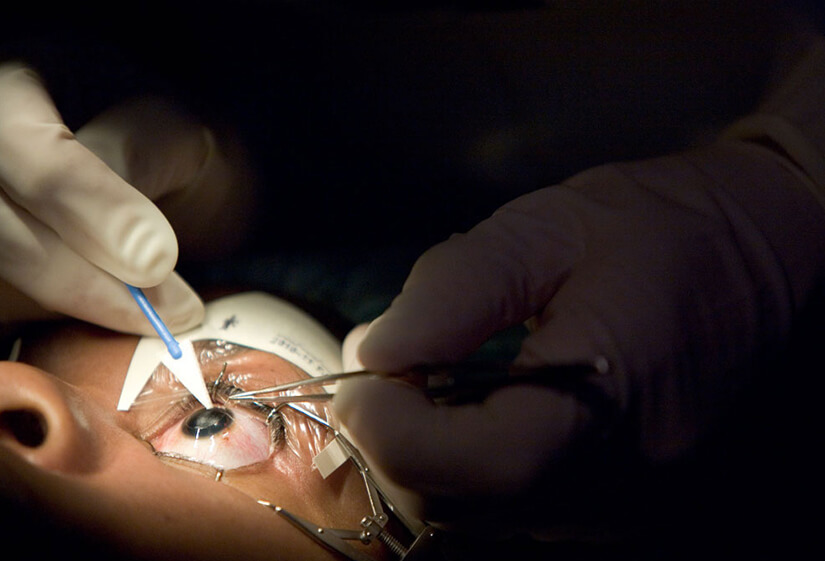Introduction
IPCL lens surgery is emerging as a revolutionary alternative for individuals who are not suitable candidates for LASIK. This advanced procedure provides crystal-clear vision by implanting a specially designed lens in the eye without removing any corneal tissue. Whether you have high myopia, thin corneas, or simply want a reversible vision correction option, IPCL may be the ideal solution.
What is IPCL surgery?
IPCL (Implantable Phakic Contact Lens) surgery is a type of refractive eye surgery that involves implanting a soft, flexible lens inside the eye, between the iris and the natural lens. Unlike LASIK, which involves reshaping the corneal surface to correct vision, IPCL surgery enhances eyesight by implanting a specialized lens inside the eye—leaving the cornea untouched and preserving the eye’s natural structure.

Overview of IPCL Surgery
- Type of Surgery: Refractive, intraocular procedure
- Target Conditions: High myopia (up to -30D), astigmatism, and other refractive errors
- Ideal Candidates: People with thin corneas, dry eyes, or high refractive errors
- Technology Used: Custom-designed biocompatible lenses made of hybrid hydrophilic acrylic
How IPCL Differs from LASIK & ICL
| Feature | IPCL | ICL (Implantable Collamer Lens) | LASIK |
|---|---|---|---|
| Procedure Type | Intraocular | Intraocular | Corneal reshaping |
| Suitable for High Powers | Yes (up to -30D) | Yes (up to -18D) | Limited |
| Thin Corneas | Suitable | Suitable | Not ideal |
| Reversibility | Yes | Yes | No |
| Cost | More Affordable | More Expensive | Moderate |
IPCL is considered a cost-effective alternative to ICL, with similar results and biocompatibility, making it a popular choice in India and other countries.
Benefits of IPCL Surgery
High-Quality Vision Correction
IPCL lenses offer HD-quality vision with minimal halos, glare, or night vision issues. Most patients experience 6/6 vision within a few days.
Suitable for High Power & Thin Corneas
IPCL is ideal for individuals with high myopia, large cylindrical numbers, or corneas too thin for LASIK.
Reversible & Biocompatible Lens
If required, the implanted lens can be safely taken out or exchanged, offering flexibility and peace of mind without permanently altering the eye. The material used in IPCL lenses is highly biocompatible, reducing the chances of rejection or inflammation.

IPCL Surgery Procedure Step-by-Step
Pre-Surgery Preparations
- Detailed eye examination including corneal thickness, eye power, and anterior chamber depth
- Temporary stoppage of contact lenses before measurements
- Use of antibiotic drops prior to surgery
The Surgical Process
- Performed under topical or local anesthesia
- A small incision is made
- The IPCL lens is inserted behind the iris and in front of the natural lens
- No stitches required; the incision is self-healing
Post-Surgery Recovery & Care
- You may experience slight discomfort or hazy vision during the initial 1 to 2 days following the procedure.
- Most people resume normal activities within 2–3 days
- Follow-up visits to monitor intraocular pressure and lens position
How Much Does IPCL Surgery Cost?
Average Cost Range in Different Countries
| Country | Average Cost (in USD) |
|---|---|
| India | $3,000–$5,000 per eye |
| USA | £2,500–£4,000 per eye |
| UK | £2,500 – £4,000 per eye |
| UAE | AED 7,000 – AED 12,000 per eye |
Cost Variation Across Indian Cities
| City | Cost Range (INR) |
|---|---|
| Bangalore | ₹60,000 – ₹80,000 |
| Delhi | ₹70,000 – ₹90,000 |
| Mumbai | ₹75,000 – ₹95,000 |
| Hyderabad | ₹65,000 – ₹85,000 |
Factors Affecting IPCL Surgery Cost
- Surgeon’s experience
- Clinic infrastructure and technology
- Brand and type of IPCL lens
- Inclusion of post-op care and check-ups
- City and location
Risks & Possible Side Effects of IPCL Surgery
Common Side Effects
- Temporary blurry vision
- Dry eyes
- Light sensitivity
Rare Complications
- Increased intraocular pressure (IOP)
- Cataract formation
- Endothelial cell loss (rare but monitored)
- Dislocation of the lens
How to Minimize Risks?
- Choose an experienced refractive surgeon
- Follow all pre- and post-operative instructions
- Attend regular follow-ups for pressure and clarity checks
Insurance & Financing Options for IPCL Surgery
Is IPCL surgery covered by insurance?
- Usually considered an elective cosmetic procedure
- Not covered by most insurance plans
- May be partially covered if linked with medical issues
EMI & Payment Plans
- Several eye care centers across India provide interest-free EMI plans, making the surgery more affordable for patients.
- You can choose to divide the payment into easy installments spread across 6 to 12 months.
How to Choose the Best Payment Option?
- Check for pre-approved loans from medical financing partners
- Ask the clinic if they accept health cards or third-party finance
- Compare offers across clinics for the best value

How to Pick the Best IPCL Surgery Clinic
Key Factors to Consider
- Surgeon’s credentials and number of surgeries performed
- Technology used (OCT, Pentacam, Biometry)
- In-house operation theatre and hygiene standards
- Patient testimonials and before-after results
❓ Questions to Ask Before Surgery
❓ Am I a good candidate for IPCL?
You are likely a good candidate if you have high myopia or astigmatism, stable eye power, thin corneas, and are above 18 years of age.
❓ Which lens brand do you use?
We use CE- and FDA-approved IPCL lenses known for high quality, safety, and visual clarity.
❓ What dangers are unique to my eye condition?
Risks may include glare, dry eyes, or increased eye pressure. Your surgeon will evaluate and explain risks based on your specific eye health.
❓ Are follow-up consultations included in the price?
Yes, most clinics include 2–3 post-op consultations in the surgery package. Confirm with your clinic for details.
Conclusion
IPCL lens surgery is a safe, reversible, and effective option for people seeking permanent vision correction without the risks of corneal surgery. Patients with astigmatism, thin corneas, or excessive myopia will particularly benefit from it. With proper planning, the right clinic, and postoperative care, you can achieve a life free from glasses and contact lenses.
Key Takeaways
- With IPCL, vision correction is achieved without removing corneal tissue thanks to a flexible, biocompatible lens implant.
- It’s suitable for high refractive errors and thin corneas where LASIK is not ideal.
- Affordable in India compared to ICL or international options.
- Ensure a thorough eye evaluation and choose a trusted eye surgeon for the best outcome.
Author Details:
Dr. Sushruth Appajigowda holds a prominent position as a cornea, cataract, glaucoma, and LASIK surgeon in Bangalore. He serves as the chief cataract and refractive surgeon at Vijaya Nethralaya Eye Hospital, Nagarbhavi, Bangalore. Renowned as one of the finest LASIK surgeons nationwide, he brings with him over 12+ years of experience across multiple LASIK platforms, including ZEISS, ALCON, SCHWIND, AMO, and Bausch and Lomb. Having successfully conducted over 5000 LASIK procedures, Dr. Sushruth holds the title of a Certified Refractive Surgeon and a Fellow of the All India Collegium of Ophthalmology. Furthermore, he stands as a distinguished speaker at various national and international forums, using his expertise to guide you in selecting the most suitable procedure based on your health requirements.












